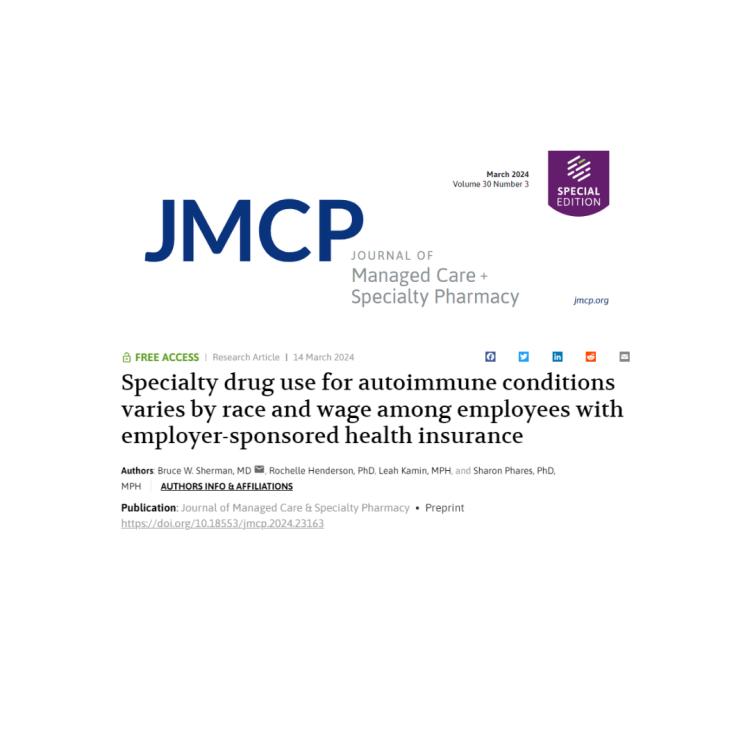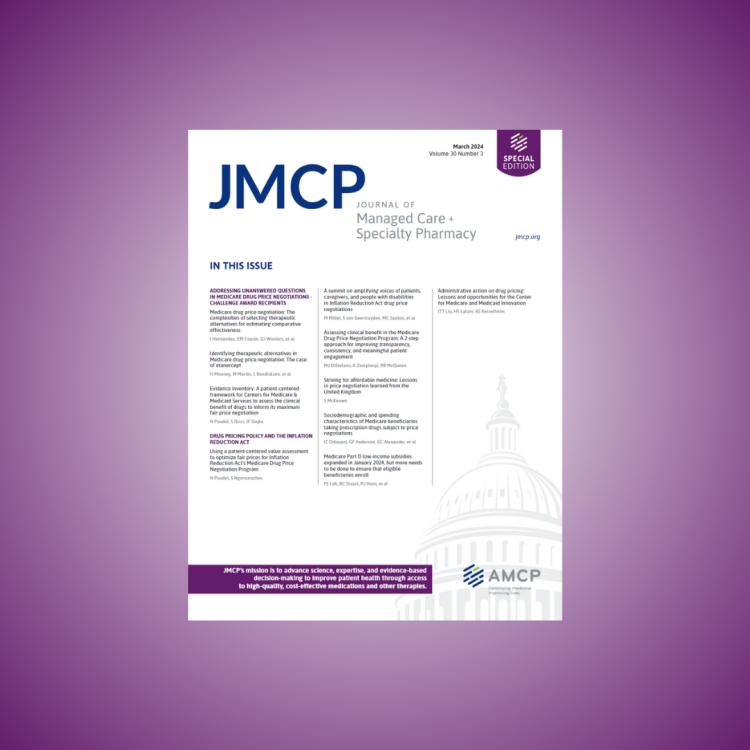AUTHORS
Bruce W. Sherman, MD; Rochelle Henderson, PhD; Leah Kamin, MPH; and Sharon Phares, PhD, MPH
PUBLICATION
The Journal of Managed Care and Specialty Pharmacy
OBJECTIVES
To assess the association of race and ethnicity and wage status on the use of specialty medicines and adherence patterns among employees with autoimmune conditions enrolled in employer-sponsored health insurance.
RESULTS
- Among the 47,839 individuals analyzed who were identified as having an autoimmune condition studied, 11.2% filled at least one specialty prescription.
- Prevalence of use was significantly less among Black and Hispanic subpopulations across all wage categories except the highest wage category.
- Researchers found lower use of specialty medicines among Black patients with autoimmune conditions compared to White patients:
- ≤$35,000 annually: 4.9% in Black patients vs. 9.4% in White patients
- $35,000-$47,000 annually: 5.5% in Black patients vs. 10.6% in White patients
- $47,000-$71,000 annually: 8.5% in Black patients vs. 11.1% in White patients
- $71,000-$106,000: 9.1 in Black patients vs. 12.7% in White patients
- Hispanic patients also had significantly lower use rates of specialty medicines compared to White patients:
- ≤$35,000: 4.5% in Hispanic patients vs. 9.4% in White patients
- $35,000-$47,000: 6.1% in Hispanic patients vs. 10.6% in White patients
- $71,000-$106,000: 8.6% in Hispanic patients vs. 12.7% in White patients
TAKEAWAY POINTS
- Previous research demonstrates that fewer low-wage workers with autoimmune conditions use specialty medications when compared to higher-wage earners.
- When race and ethnicity are factored in, disparities in use of specialty medicines among Black and Hispanic individuals are exacerbated.
- Most employer-sponsored health insurance incorporates a “one size fits all” approach to health plan premiums, irrespective of employee income.
- Employer efforts to manage specialty medicine costs by implementing increased cost-sharing from enrollees may contribute to disparities in the use of of specialty drugs.
Related Materials:
- “Specialty drug and health care utilization vary by wage level in employer-sponsored health plans,” The Journal of Managed Care and Specialty Pharmacy, Bruce W. Sherman, MD, Brian Sils, MPP, Leah Kamin, MPH, and Kimberly Westrich, MA
- “Ignoring inequitable benefit design is not an option,” Benefits Pro, Bruce W. Sherman, MD, and Kimberly Westrich, MA
Image

